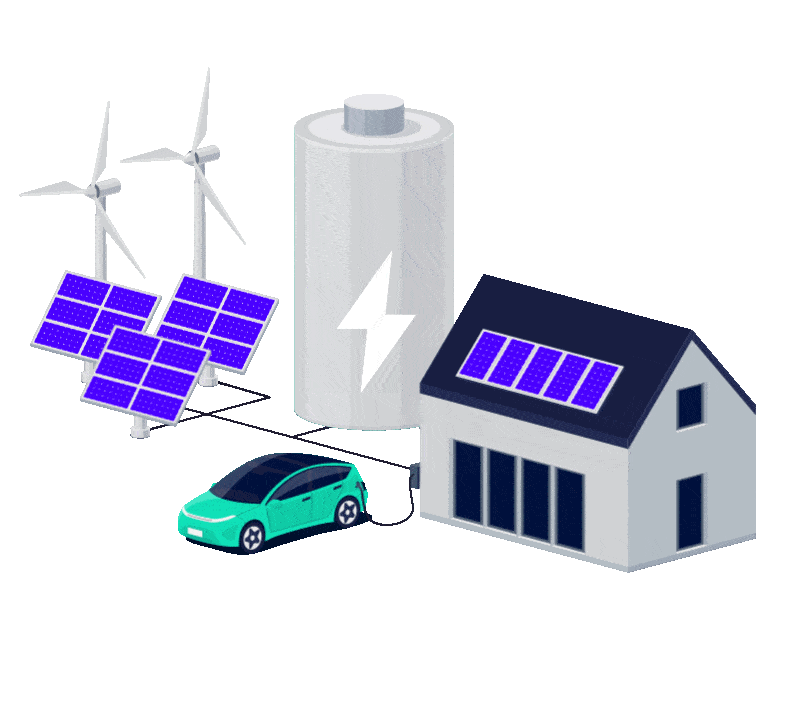INSURING THE GREEN ECONOMY
A green economy will, according to the UN Environmental Programme, be low carbon, resource efficient and socially inclusive. Achieving this will take huge amounts of financial and human capital, and a willingness to embrace risks and capture opportunities that are not yet fully understood. According to Isa Ennadifi, Head of Sustainability Solutions, Alternative Risk Transfer (ART) at Allianz Commercial, this is where the financial services sector has a role to play. ‘As insurers we have different levers to pull,’ she said.

One of those levers is to create products and services that give investors the confidence to back energy transition projects so they move in a meaningful timeframe from ideation to commercial operation. Carbon credits linked to carbon projects, be they nature-based or engineering methodologies to remove carbon from the atmosphere, are key transition mechanisms but market integrity has been undermined by claims of dubious environmental impacts to double counting.
‘There are a lot of risks associated with the carbon markets and that creates lots of opportunities for risk transfer products,’ said Charlie Pool, Head of Carbon Insurance at Howden. ‘As insurers we can enable things to happen that would not happen otherwise.’
This is not a new role for the industry. After all, it was Hartford Steam Boiler, now owned by Munich Re, that back in 1866 helped fuel the Industrial Revolution by setting standards for boiler design, manufacture and maintenance.
Insuring the green transition will require a different way of thinking and interacting with customers. Here’s Simon Wilson, the President of Markel , talking about designing a brand new revenue protection product for battery manufacturers.
Given the scale, complexity and urgency of the climate crisis, the green economy revolution needs to unroll even faster. Insurers are leaning into this need for speed by repurposing existing products for new risks and new needs. Howden, for example, uses an adapted form of warranties and indemnities insurance, which is a mature and tested product in the M&A market, to provide third party assurance of a carbon credit.
‘It’s a gamechanger because it creates a governance mechanism to ensure the quality of those carbon credits,’ said Pool.
Glenn O’Halloran, Executive Director for Climate, Risk and Resilience at Howden, said the broker has also taken the bones of a liability product and applied it to emerging carbon capture and storage technology to cover leakage risk.
‘It solves a real need on the client side to unlock financing,’ he said, adding there are real opportunities for insurers to be catalysts for change by solving pre-FID funding pain points.
‘We’re not there to take equity style risk for insurance like premium type returns,’ said O’Halloran. ‘We’re there to isolate risks and understand them. If we can take one element of risk off the table, then what’s the knock on effect on equity and debt financing?’
It's a learning curve for this conservative industry, which tends to price risk by looking over its shoulder and is now being asked to lean into ambiguity.

Even in the more ‘mature’ renewable energies, we only have 15 years of loss data. We need to use data adjacencies from other areas of our portfolios, and with new technologies we need to isolate the really revolutionary pieces and use our colleagues in risk engineering to really understand those risks.
VICKY ROBERTS-MILLS
GLOBAL HEAD OF ENERGY TRANSITION,AXA XL

She pointed out that floating offshore wind may be a new technology but the industry already insures things that float as well as moorings and fixings from the oil and gas industry. ‘How do we leverage that existing knowledge and data? Maybe by analysing data in a different way to develop a more forward pricing approach,’ she said.
Part of this new approach involves bringing in people from different disciples and industries. AXA XL, for example, is hiring engineers and flipping them into underwriters. ‘It’s about creating a culture that’s collaborative and where it’s safe to ask questions,’ said Roberts-Mills.
She pointed out this isn’t just about seizing the sizeable commercial opportunities afforded by the green economy; it’s also about doing the right thing so that there are risks that can be insured.
One thing is clear: insurers are once again set to play a pivotal role in a huge economic and societal shift that will have implications for us all.
Stay current with Insurance Innovators
Subscribe to our newsletter to receive news, insights and special offers.


